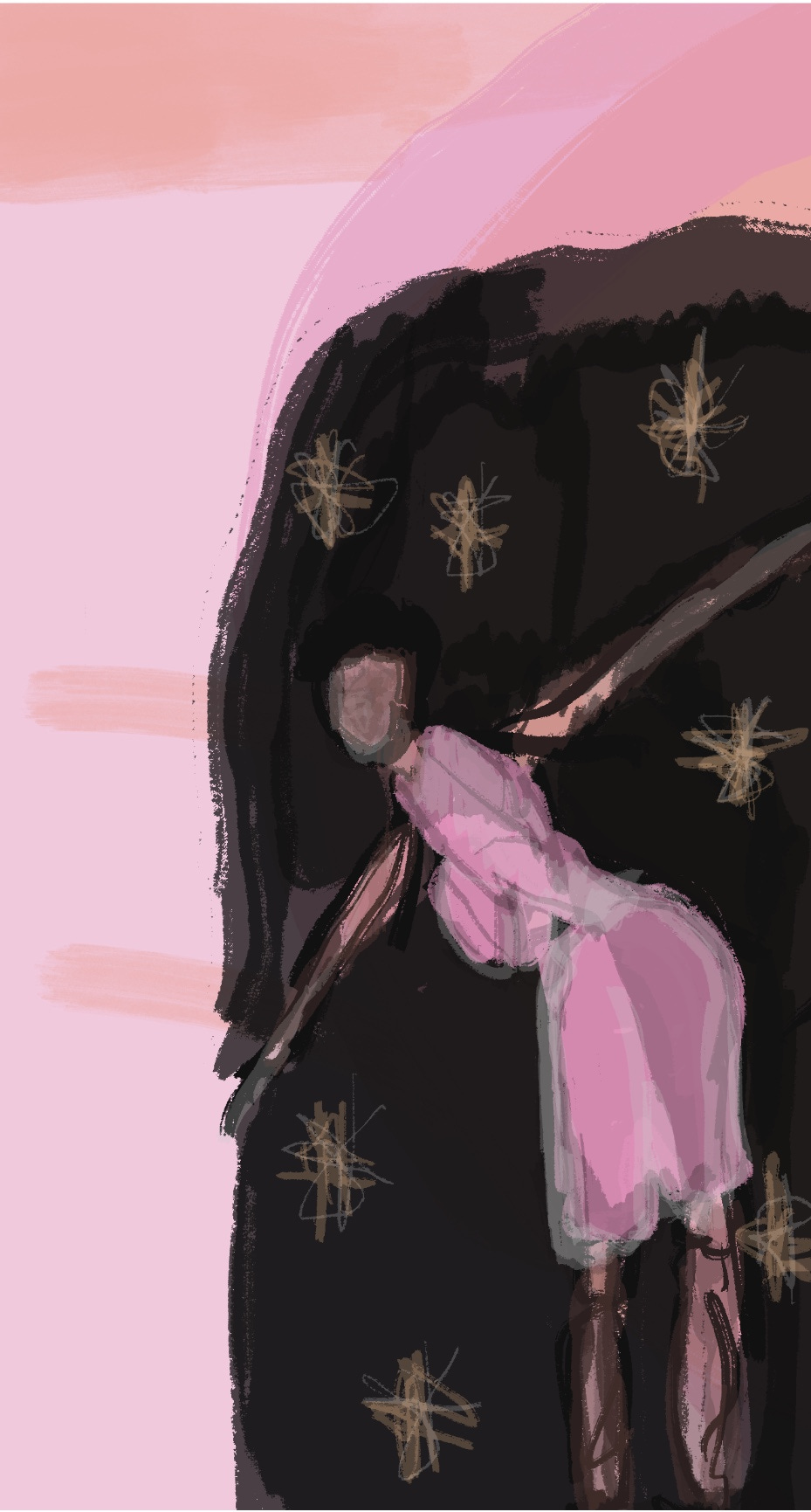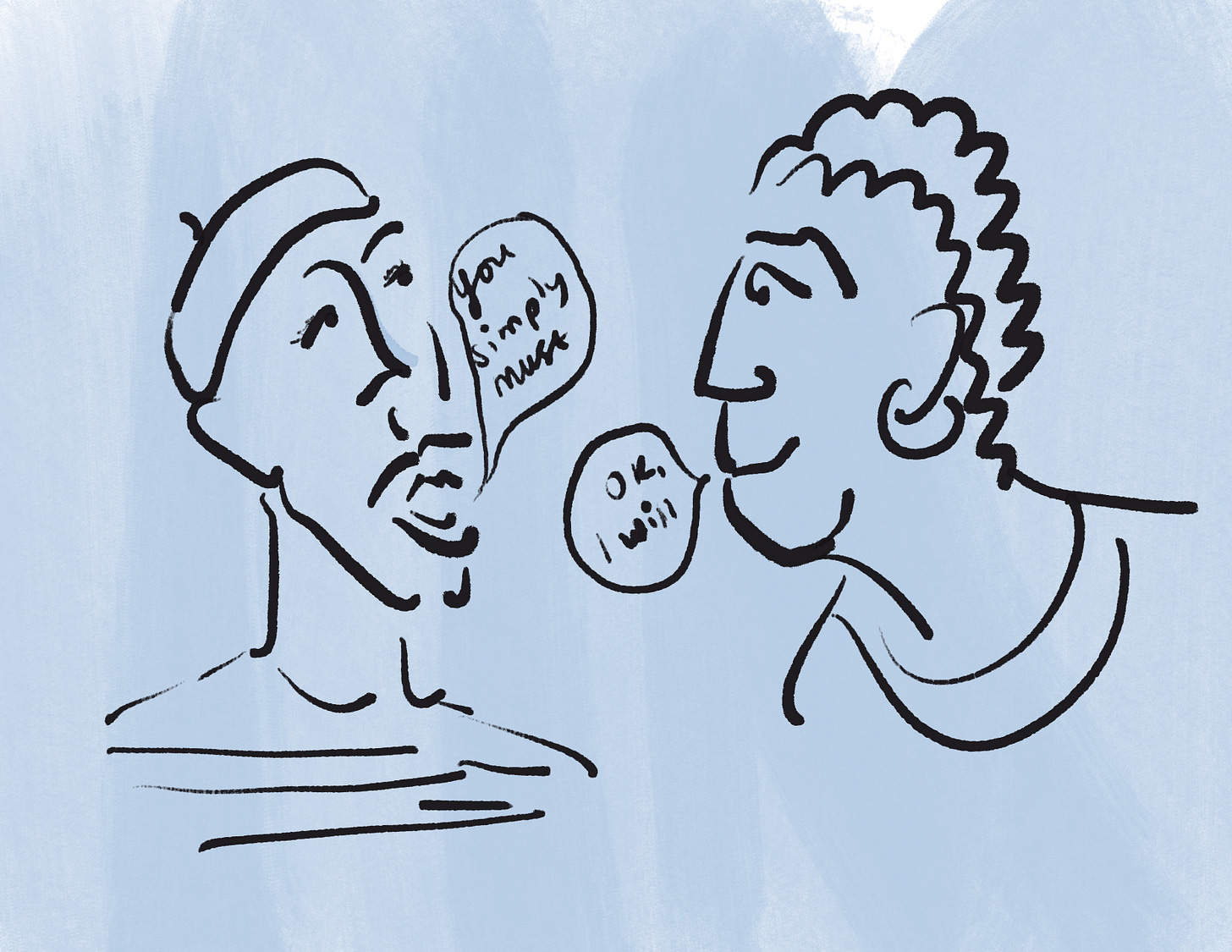Dear Friend,
I hope you’ve been having a good week. The temperatures have suddenly dropped here, but for the most part, this week has been gorgeous blue skies and sun.
Yesterday, I took the Metro to the well-heeled suburb of Vincennes in the east of the city, the site of literary event Festival America. The conference convened renowned American essayists and novelists to discuss America past, current and future.
Because France is France, the overall feel of the event was more French than American. For example, each of the speakers was paired with a consecutive interpreter, forcing a periodic pausing of discussion; plus, the “grilled cheese sandwiches” on offer were toasted Comté in a brioche bun.
I had seen the festival advertised at my local public library (see here for my love letter to French libraries) and was drawn by one of the ‘headliners’ Ta-Nehisi Coates, a journalist and author I follow and admire.
Ta-Nehisi Coates was speaking in a venue called “Magic Mirrors”, a round fairground structure that had been erected for the occasion of the festival and renamed Espace Truman Capote.
Three myths
The American myth
The interview focused on Coates’ first novel, The Water Dancer, which is set during the pre–Civil War South and the conversation explored the history of the US, from slavery, to the Civil War, to Jim Crow and Obama.
Coates talked about the place of history in what he described as the “national myth” of America, predicated on the morality and greatness of the country’s founding fathers, who they themselves were the owners of enslaved people and were directly enriched by the free labour of those people.
In that strange, dimly-lit space studded with mirrors, Coates spoke about the “American habit of erasing”, erasing the undemocratic and cruel parts of the country’s history to paint an unblemished picture of the country as the democratic ‘city on the hill’.
At the end of the dialogue, the interviewer asked if she could put just one last quick question to the author: she wanted to know what he thought about society’s relationship with race in France. His response, quite understandably, was that that question could not be answered quickly.
The French myth
Like America, modern France was built on the idealistic principles of a revolutionary republic. The Great Revolution of 1789 enshrined the separation of church and state and the Enlightenment ideology that every man is equal and has the right to autonomy and freedom.
Of course it was never this simple. The Revolution itself was a bloody, violent and traumatic process. It ultimately resulted a few years later in the reign of France’s first Emperor, Napoleon Bonaparte, then the restoration of the monarchy, then the rule of the next emperor, Napoleon III (Bonparte’s nephew). Napoleon III expanded the empire-building work of his uncle, presiding over the French Empire’s expansion into North and West Africa.
This expansionist behaviour was justified precisely on the grounds of the superiority and rightness of the French Republic’s founding principles. France pushed for a culture of “assimilation”, insisting not only on territorial and economic dominance over its overseas territories, but also a sort of mental dominance via the imposition of French language and ideals.
This model is still prevalent today. Though France and especially Paris is a multi-ethnic place, in general the French are rather phobic of the term ‘multiculturalism’. Whatever your background, if you’re a citizen of France, you’re expected to consider yourself French before all else. If you have another culture, you may express it in your home and private life, but the public sphere, according to the Republic’s principals, is officially colour-blind. It is even illegal for the French government to collect any official statistics on race, ethnicity or religion.
The idea of a colour-blind state is a noble one, in theory. But in reality, everyday examples of discrimination based on race and religion abound. To what degree, we can’t exactly say, because we don’t have the statistics.
I have plenty more I’d like to write on this subject and I’m sure it will com up again in future letters.
The British myth
Today it was a perfect autumnal day: blue skies and sun with a crisp chill in the air. I took a walk around the 18th arrondissement where I live, and was thinking about all this business of national myths vs. realities and the gaps between them. And then I tried to think about what the British national myth was.
It’s perhaps not so clear as it is for the U.S. and France, two cultures which despite being very different in some regards, also share founding republican myths rooted in the same era and same ideology.
As we were all very much reminded with this week’s ceremonial funeral of the Queen, the UK is not a republic. Our country never had a definitive moment of reinvention and rejuvenation. We don’t have a constitution—we’ve just sort of muddled along in vagueness from the Middle Ages until now.
In the US and France, there is a dissonance that emerges in the space between the idealised myth and the reality. In the UK there is dissonance…sort of everywhere. This sort of deliberately non-confrontational blurriness meant that the Queen could be an icon at the same time that the Sex Pistols’ God Save the Queen could be an iconic album.
In the Nineties, arguably New Labour was the last political project to sort of successfully entwine the threads of a deeply conservative and traditional country on one hand, and rebellious, punky, funny and satirical place on the other. For a while it seemed like it was ok for British culture to be a place of postmodern contrasts and contradictions, embodied for me by images like Geri Halliwell in a Union Jack mini-dress, or Noel Gallagher sipping cocktails with Tony Blair.
But the shonky postmodern coalition of ideas did not survive the 2008/9 recession. The delicate cultural braid began to come apart, first in an insidious way and then in increasingly clearer ways all the way up to 2016 when David Cameron’s referendum about the European Union became a contest of opposing myths.
In some ways, it feels like the myth that won—the myth that positioned the little island in northern Europe as the centre of the world—will have trouble outliving the Queen. Her reign encompassed the 20th century and the very end of the Empire, she quietly embodied some of its values just by virtue of the era in which she lived. What does King Charles embody now?
In the political sphere, we seem to have gone from postmodern to post-factual.
Paris tips
Back in summer 2020 I wrote about Little Africa, the tour company and cultural agency founded by entrepreneur Jacqueline Ngo Mpii. Late last year, Jacqueline opened Little Africa Village, a boutique/meeting space in the heart of the Goutte d’Or neighbourhood in the 18th arrondissement. Next time you find yourself near the Sacré-Coeur, it’s well worth heading to the east of the hill to see the gorgeous space for yourself. There are regular exhibitions and discussion events, and you can also pop in for a spot of shopping and to meet the lovely Jacqueline herself.
Little Africa Village, 6bis Rue des Gardes, 75018 Paris
While you’re in that area, consider checking out the following:
Bookshop/café La Régulière, 43 Rue Myrha, 75018
Designer boutique Maison Chateau Rouge which champions local African makers and materials, 40 Bis Rue Myrha, 75018
Ola’s Café, 14 Rue Marcadet, 75018, a dinky but charming vegetarian café with an arty feel, opened by couple Fay Latham and Olatunbosun Ola, who moved to Paris from Manchester. They even serve veggie sausage rolls!
Thirty-second book club
This week I finished the rather obscure essay collection I mentioned last week, The Dogma of Christ, and Other Essays on Religion, Psychology, and Culture by Erich Fromm. I particularly enjoyed an essay entitled ‘Medicine and the Ethical Problem of Modern Man’, which basically explores the difference between ethics in the sense of a set of codes by which we mutually agree to act in society or a particular field vs. ethics in the sense of an innate, bodily sense of conscience. Which fits VERY NEATLY with the the letter’s earlier theme of societal myths vs. felt realities.
Fromm writes:
“You cannot live inhumanly all your life without suffering severe reactions.”
That will be all for now. If you have recently subscribed to Pen Friend, merci beaucoup! I am very pleased that you’re here.
I’ll be in your inbox next Sunday with more news, thoughts and recommendations from here in Paris.
Until then, Shana Tova!
Yours,
Hannah






This is so interesting. Thank you!
So interesting this week Hannah! Yes, we human beings are an extraordinarily complex species arent we ? Can we imagine another animal makinh such a kerfuffle for itself? Eat or be eaten, keep warm, find a mate , have a family identical to yourself and your partner. No politics or fuss , no revolutions or lengthy cruelties! Except perhaps for Bees, who are blatant Royalists. You are a superb writer Hannah, such a pleasure to read and ponder your thoughts this week.